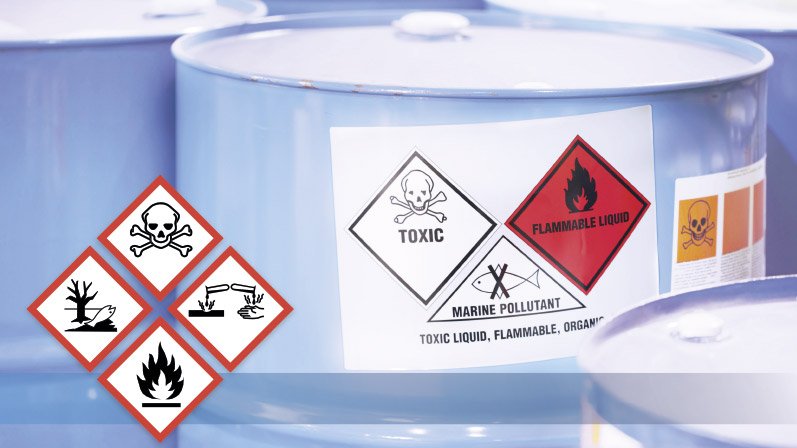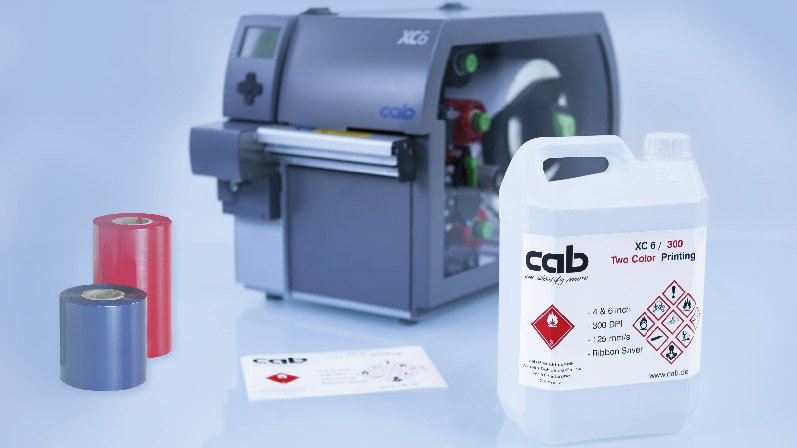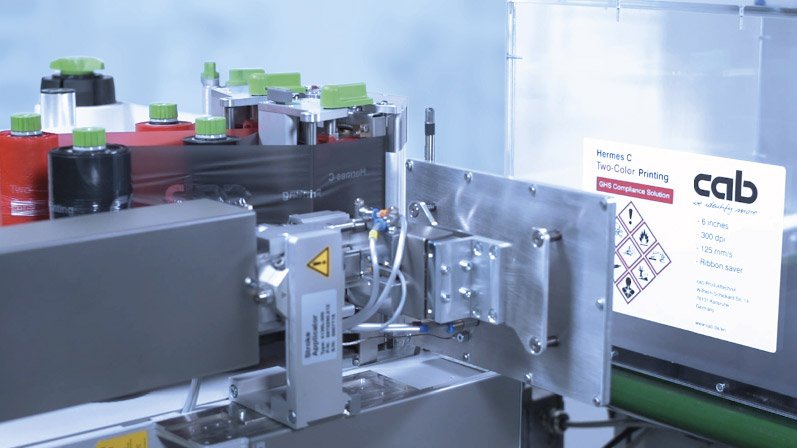Cab’s labeling solution for hazardous goods
1803 Views |

Cab’s labeling solution for hazardous goods
FDA, EEC, CLP, ADR, RID, DGR, RoHS, GbV … these abbreviations indicate instructions in force, directed in particular to the chemical and pharmaceutical industries. Manufacture of such businesses includes liquid and powder mixtures, acids and alkalis, polymers and special plastics. These are accessed by consumers in small containers, bags or barrels. Many of such substances are potentially hazardous. Anyone who puts them into circulation must label them clearly.

Symbols
When it comes to labeling hazardous substances, the Globally Harmonized System (GHS) provides uniform guidelines. These include, for example, label sizes and warning symbols. The symbols are black pictograms on a white background, framed by a red rhombus.
Two-color printing
cab printers of the XC series were the first to enable printing two colors on a label in one operation. Such printers provide an additional print head to print the spot color which is suitable for labeling hazardous goods.
Label quality
To identify hazardous substances, labels must provide the highest level of security and durability. Depending on an operating process and the manners goods are stored and transported, resiliencies to heat, cold, humidity, acids, fats and/or friction are required. The print must not smear even under the highest stress. On containers, labels have to stick securely according to BS5609/3 standard even in rough conditions or in sea water. cab recommends labels made of polypropylene with GHS operations indoor or outdoor. Suitable thermal transfer ribbons in black and red are of resin quality.

Source : https://www.cab.de/en/marking/



